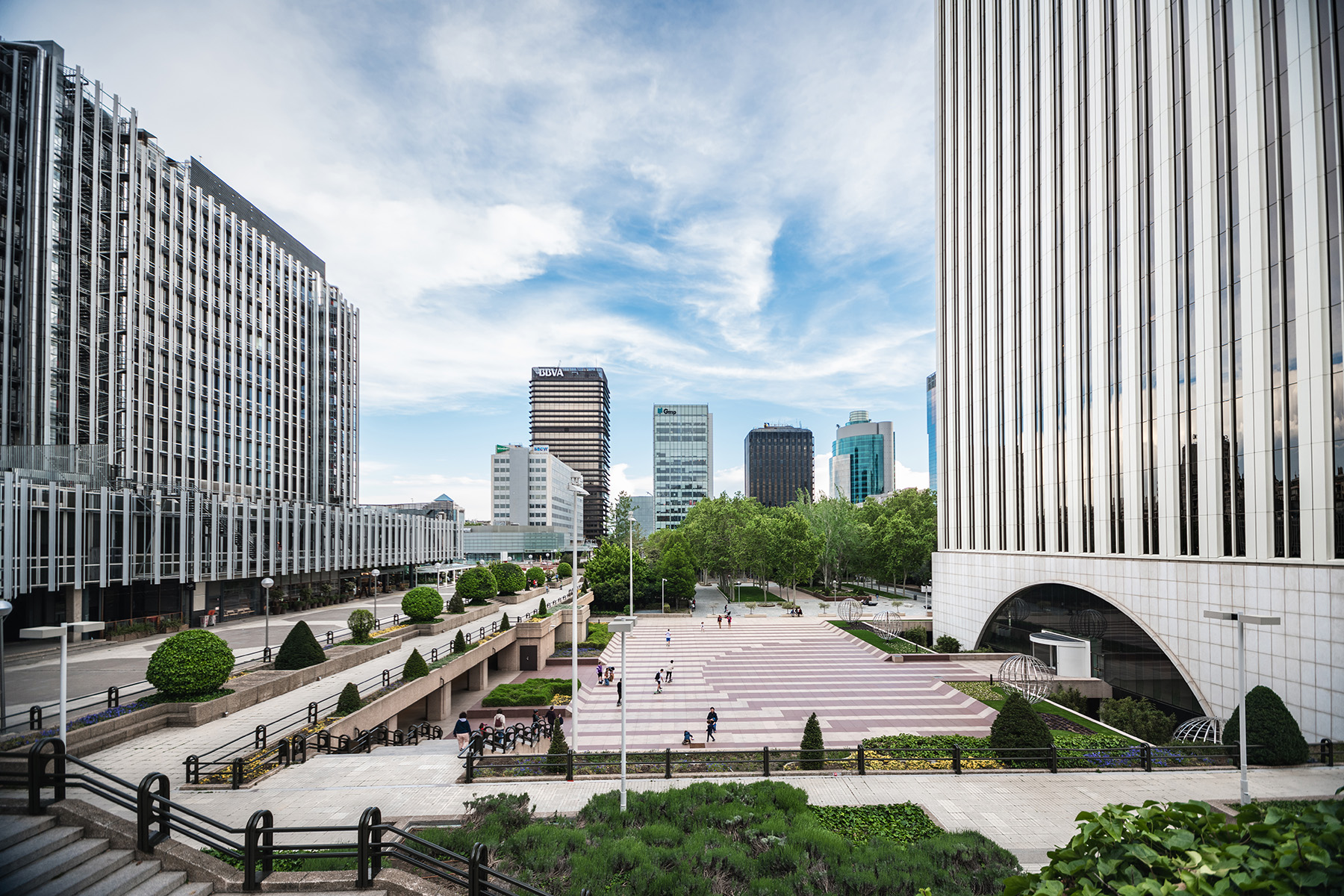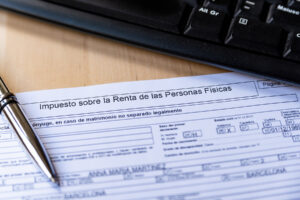The Iberian sunshine comes with a price, especially if you’re a freelancer. There are nearly 3.4 million people registered as an autónomo in Spain, and their freelance taxes are levied at the same rate as other workers.
The good news is that taxes for entrepreneurs in Spain vary according to the type of work. Furthermore, tax contributions from those who are just starting a business in Spain are lower for the first 24 months.
For international freelancers, managing payments across borders in foreign currencies is an important consideration. Providers like Wise can simplify receiving international payments and handling multiple currencies, making it easier to focus on tax compliance and growing your business.
Below, you’ll find sections on the following topics:
Xolo
Xolo is an all-in-one service tailored for expat freelancers in Spain. Their team of expert accountants and digital business management tools support freelancers in English so they feel secure when setting up and running a business. Sign up for Xolo to take care of your invoicing, expenses, and taxes easily.
Freelance tax in Spain
Freelancers and the self-employed pay Impuesto sobre la Renta de las Personas Físicas (IRPF) or personal income tax at the same rate as everyone else. The Agencia Tributaria, the country’s tax authority (also called the Hacienda), determines everyone’s tax liability.

If you spend over 183 days per calendar year in Spain, you’re a tax resident. This applies even if you live and work in another country for the rest of the year.
Rates of tax vary between limited companies, called a Sociedad Limitada (SL), and self-employed autónomos. If you’re struggling to work out your tax status, it’s worth reaching out to a financial advisor or legal expert who specializes in helping freelancers in Spain. Companies providing these services in Spain include:
Tax for self-employed sole traders and freelancers in Spain
Freelancers in Spain pay tax at a progressive rate. As such it varies between 19–47%, according to income earned. Bear in mind that Spain’s regions levy taxes differently, so actual rates vary across the country.
For freelancers working with international clients, managing income in multiple currencies can complicate tax calculations. Multi-currency accounts like Wise allow you to receive payments in 20+ currencies using account details without needing a foreign address.
With Wise, You can then convert foreign currencies to euros at the mid-market exchange rate when needed, providing transparency for your income reporting to Spanish tax authorities.

Tax for partnerships in Spain
There are different kinds of business partnerships in Spain. These include the Comunidad de Bienes (a partnership based on the joint ownership of a business, goods, and property) and the Sociedad Civil (a private partnership agreement for a specific business).
In general, partnerships are not taxed at the corporate level. This is because the association lacks a legal personality and isn’t a commercial company. Therefore, each partner must pay personal income tax rather than company taxes.
Different rules apply for partnerships that are considered a “flow-through business entity”; these are taxed similarly to Spanish business entities.

Corporate tax in Spain
Corporate taxes in Spain for limited companies are a flat 25% on profits. Other tax rates may apply, depending on the type of company that is taxed and its type of business, and resident companies are taxed on their worldwide income.
For 2026, startup companies that begin in 2025 or later with turnover between €1 million and €10 million pay a corporate tax rate of 23% on their profits. Those with a turnover of less than €1 million pay 19% on their first €50,000 of profits and 21% on the rest.
Newly created companies are taxed at a 15% tax rate for both the first tax period in which they obtain a profit and the following tax period. This tax rate does not apply to equity companies (i.e., companies that do not carry on business activity) or to newly created companies that are part of a national or international group.
Registering for freelance tax in Spain
If you already live in Spain or have bought or sold a property, you may be registered with the country’s tax authority already. You can check this by looking up your NIE in the authority’s database.
If you aren’t registered, you’ll need to fill out Form 030 (Modelo 030) and present it to your local tax office. You’ll also need to provide your NIE, passport, and an up-to-date certificado de empadronamiento (census record). You can get this from your local municipal hall. You can also send in the documents online.
To pay freelance tax in Spain, you need Form 036, or a simplified version, Form 037. The Agencia Tributaria explains the difference on its website.
When registering as a freelancer in Spain, having clear financial records is essential. A Wise Business account can help by providing detailed transaction histories and statements that clearly separate your business income from personal finances. This documentation can be valuable when establishing your business activity for tax authorities and organizing your quarterly tax declarations.
Freelance tax deductions and credits in Spain
When paying freelance tax in Spain, you can claim deductions on your tax return for the following, provided you have proper invoices and receipts:
- Spanish social security contributions
- Spanish health insurance premiums for yourself to a maximum of €500
- Expenses such as accounting and tax services
- Maintenance expenses for business activities
- Professional subscriptions
- Office expenses
- Phone and internet
- Any vehicles that you use for work

Head of Operations, Xolo
Irina García
Insider Tip: Freelancer health insurance
Health insurance is deductible up to €500 per year for the autónomo, with an additional €500 per household member (spouse/children under 25) if their income is below minimum wage. The limit increases to €1,500 for household members with disabilities.
In addition, business owners can claim depreciation or amortization on all assets, except land. The tax authority has a table of guidelines identifying the maximum rates per year and the maximum number of years for each asset type. PwC offers a helpfully abridged list on its website.
Deductions when you work from home
For freelancers who work from home, Spain’s tax authority specifies certain partial deductions, such as supply expenses (e.g., water, electricity, gas, telephone, internet). The deduction is 30% of the expenses in proportion to the square meters of the home used for the activity with respect to its total area unless you can prove any other proportion. For example, if 20% of the home is used for business, 30% of that 20% of eligible supply costs may be deducted.
If a vehicle is used partly for business purposes, the tax treatment differs by tax type:
- Income tax (IRPF): Vehicle expenses are generally not proportionally deductible unless the vehicle is used exclusively for the activity or the freelancer carries out certain qualifying activities (e.g. transport, delivery, driving instruction).
- VAT (IVA): In general, 50% of the VAT on vehicle-related expenses is deductible when the vehicle is used both privately and professionally, unless exclusive business use can be proven.

Freelancers who work from home can claim up to €26.67 per day within Spain (and €48.08 outside the country) for food expenses if you need to eat away from home for business. On an overnight trip, you can deduct €53.34 per day within Spain and €91.35 per day spent abroad.

Head of Operations, Xolo
Irina García
Insider Tip: Keep all receipts
Make sure you keep your receipts, even for small expenses (like meals or transport), and ensure payments are made via card to maintain proof.
Expense tracking for maximum deductions
Proper tracking of business expenses is crucial for freelancers to maximize legitimate tax deductions in Spain. Using business multi-currency accounts like Wise Business can simplify this process through features that automatically categorize expenses and integrate with popular accounting software.
The Wise Business debit card allows you to separate business purchases from personal spending, creating a clear audit trail for tax purposes.
Freelancers who maintain detailed expense records can more confidently claim deductions for business costs like office supplies, professional services, and travel expenses. When Spanish tax authorities request supporting documentation, having organized digital records of transactions with timestamps, merchant information, and categorization can make the difference between a successful deduction claim and a rejected one.
How to file freelance tax in Spain
As an autónomo, after registering with the tax authority, you generally must declare your income every three months by filing a quarterly income tax prepayment. For example, in January you declare your results for the October to December period and pay 20% of your net profit (income minus deductible expenses) as advance income tax, unless you qualify for an exemption due to income withholdings.
The form used is Modelo 130. You must file it unless at least 70% of your income comes from clients who apply income tax withholding (retenciones) on your invoices and pay that tax on your behalf.
Balcells Group
Balcells Group provides legal advice to individuals, companies, investors, immigration agencies and other intermediary agents. They have over 40 years of professional experience, and have built their firm based on the integration of several generations of lawyers that offer a balanced vision based on experience and modernity.
If you are paying freelance tax in Spain under the modular system (estimación objetiva), where your income levels are based on estimations rather than actual income, then you have to use Modelo 131. The form must be completed between the first and 20th days of April, July, and October, and between the first and 30th January for the final quarter.

Head of Operations, Xolo
Irina García
Insider Tip: Set deadline reminders
Spain has strict tax deadlines for income tax, VAT, and Social Security payments – late submissions may result in penalties. To stay on top of your finances, set up automatic reminders of tax deadlines and avoid fines.
In April, freelancers usually file the quarterly tax return for the first three months of the year. Separately, once a year during the annual income tax campaign (normally between April and June), you must file the Declaración de la Renta using Modelo 100, which summarizes your total income, expenses, and advance tax payments for the previous year. Autónomos are generally required to file this annual return regardless of whether they had periods with no activity.

Managing international income with Wise Business
For freelancers in Spain working with international clients, having the right financial tools can significantly impact both tax compliance and profitability. Wise Business offers several features specifically beneficial for Spanish autónomos with global clientele:
- Account details in 20+ currencies: Receive payments conveniently from clients internationally without opening multiple bank accounts or paying high conversion fees. Account details eliminates the need for clients to make expensive international transfers.
- Mid-market exchange rate: Convert between currencies at the mid-market exhcange exchange rate with a small, transparent conversion fee.
- Business expense tracking: Use the Wise Business debit card to make business purchases and automatically categorize expenses for easier tax deduction documentation.
- Accounting integration: Connect your Wise account with popular accounting software to streamline tax filing and maintain accurate financial records for Spanish tax authorities.
- Batch payments: Efficiently pay multiple suppliers, contractors, or tax payments in one transaction, saving time and reducing administrative work.
VAT in Spain for self-employed people
Freelance tax in Spain extends to the Impuesto sobre el Valor Añadido (IVA), or value-added tax (VAT). Like other businesses, freelancers must pay 21%, irrespective of annual turnover. Although, some goods and services such as educational services, artistic endeavors, and some forms of independent writing are exempt. Some goods benefit from reduced VAT rates. These are:
- 10% on specific food, hospitality, and transport
- 4% on basic foodstuffs, books, newspapers, and some medical products

You must report your IVA every quarter (Modelo 303) and complete an annual IVA declaration or Modelo 390 in January. You can do all this online through the Agencia Tributaria. If you provide exempt services, you don’t have to submit an IVA return and you cannot reclaim IVA on your own costs.
VAT within the European Union
You may be exempt from paying VAT on goods and services if you deal with business customers (i.e., VAT registered) outside of Spain but within the EU. This is because they pay the VAT at their country’s rate at their end.
If you intend on doing this, you need to register with the Agencia Tributaria to receive a special tax number and will need to make quarterly declarations about your intra-community business. If you are selling digital services to consumers within the EU, you have to charge VAT at the rate of your customer’s country.
Managing cross-border payments and VAT compliance for EU clients is simpler with a multi-currency account from Wise. You can receive payments in euros from EU clients without paying high currency conversion fees, and maintain clear records of which transactions are VAT-exempt intra-community supplies.
For digital service providers who must charge VAT at the client’s local rate, Wise’s local account details in other European currencies like GBP, PLN, and HUF can make transactions smoother for both you and your clients.
Social security for self-employed workers in Spain
If you are earning more than the annual Spanish minimum wage as a self-employed worker or an autónomo, you must pay social security contributions. These contributions entitle you to health care and, after you’ve paid into the scheme for 15 years, a pension.
You can pay more than the basic amount to get a higher pension or make additional contributions to be covered for accidents or sickness at work.
Self-employed workers must make contributions based on their earnings. The system includes 15 economic brackets, with contribution amounts based on which bracket your earnings fit into.
If you have not registered as an autónomo but have set up your company within the past three years, you can re-apply for the same discounts a new autónomo would receive.
Women who return to self-employment after maternity, adoption, fostering, or guardianship may benefit from a reduced Social Security contribution equivalent to the flat rate for 12 months, rather than a full exemption.
If you work in a full-time employed position and also freelance (pluriactivity), you may qualify for reduced self-employed Social Security contributions: a 50% reduction for the first 18 months, followed by a 25% reduction for the next 18 months, applied to common contingencies.
Useful resources
- Agencia Tributaria – the Spanish tax authority
- Servicio Público de Empleo Estatal de España – Spain’s social security system











